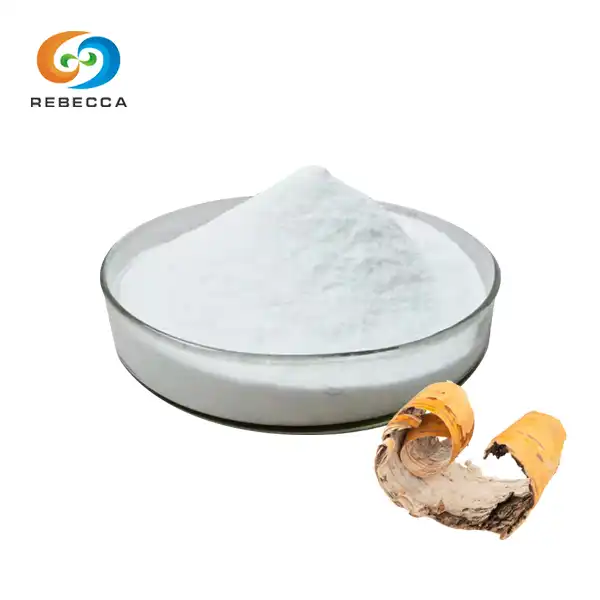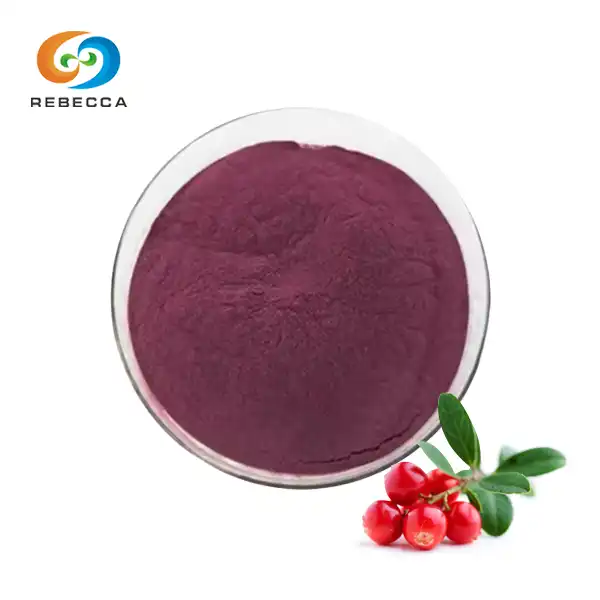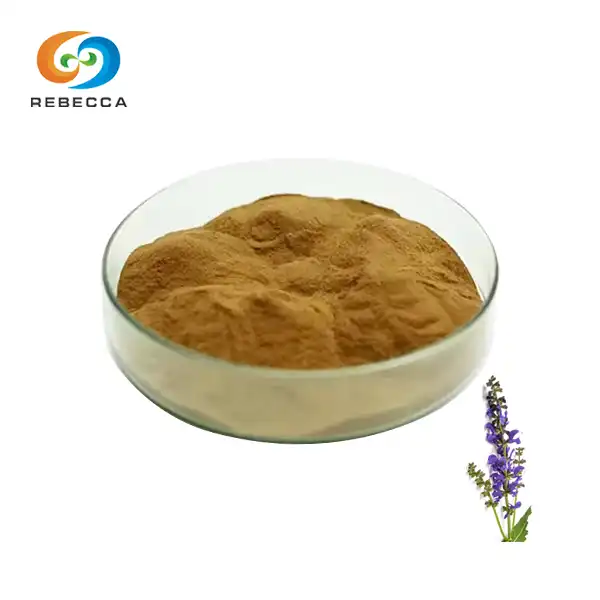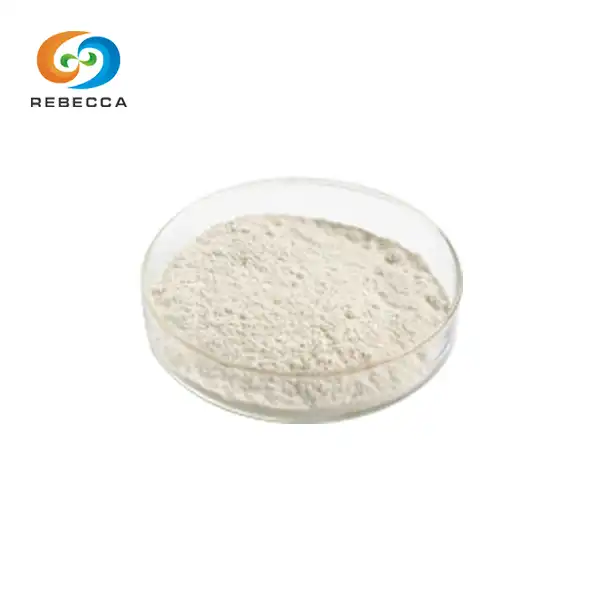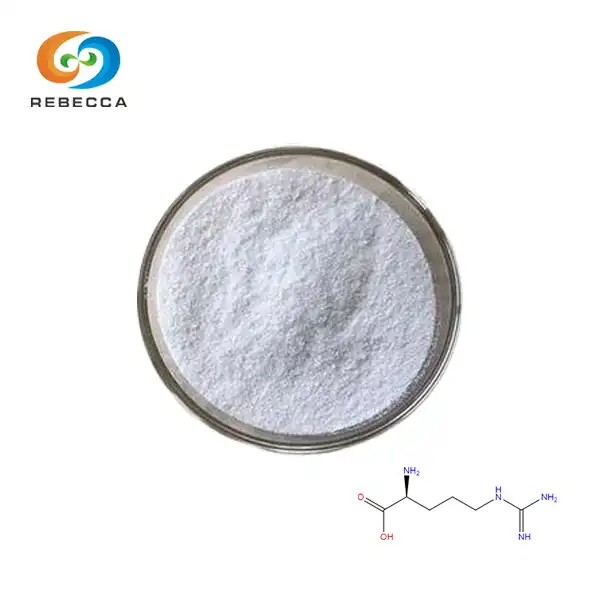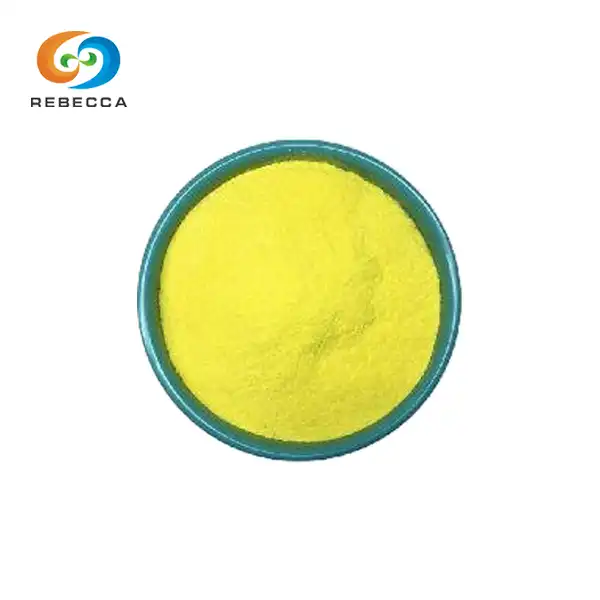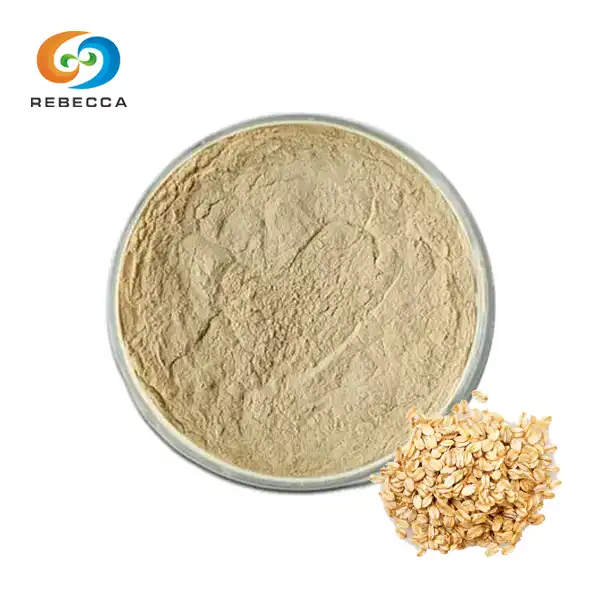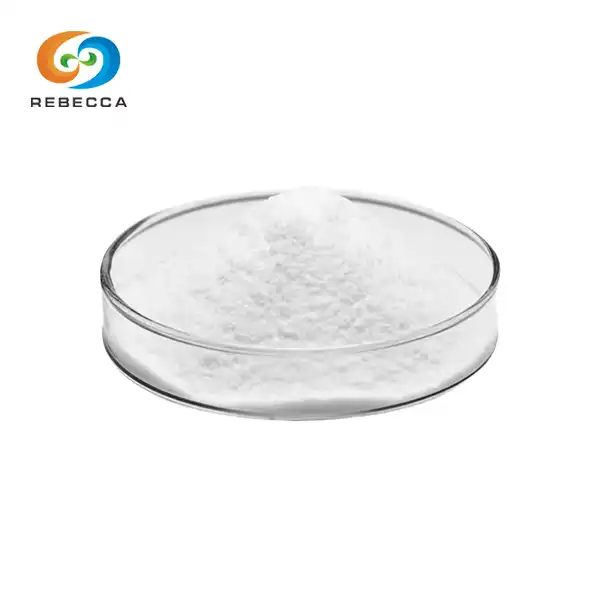Is Urolithin A Safe?
As a metabolite of ellagic acid, which is found in various fruits and nuts, Urolithin A powder has shown promise in several areas of health and wellness. However, as with any compound, questions about its safety, efficacy, and potential side effects naturally arise. In this comprehensive article, we'll delve into the safety profile of Urolithin A, examine the evidence from clinical trials, discuss appropriate dosage guidelines, and explore potential side effects.
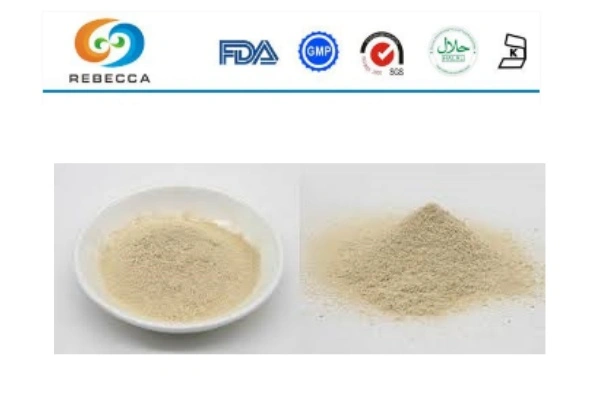
Clinical Trials Evidence: Evaluating Urolithin A's Safety and Efficacy
The safety and efficacy of Urolithin A have been subjects of numerous clinical trials, providing valuable insights into its potential applications and safety profile. One of the most significant studies was a randomized, double-blind, placebo-controlled trial conducted by Andreux et al. (2019). This study, which involved 60 elderly sedentary individuals, found that oral supplementation with Urolithin A was safe and well-tolerated over a 4-week period. The researchers observed improvements in mitochondrial and cellular health markers, suggesting potential benefits for muscle function and endurance.
Another notable clinical trial by Singh et al. (2022) investigated its effects on muscle strength and exercise performance in middle-aged adults. This 4-month study involving 66 participants reported no serious adverse events related to Urolithin A supplementation. The results showed improvements in muscle endurance and decreased fatigue, further supporting its safety and potential efficacy.
A phase I clinical trial by Heilman et al. (2017) specifically focused on its safety, tolerability, and pharmacokinetics. This study, which included both single and multiple ascending dose phases, found that Urolithin A was safe and well-tolerated at doses up to 1000 mg/day for 28 days. No clinically significant changes in vital signs, electrocardiograms, or laboratory parameters were observed.
These clinical trials provide encouraging evidence for its safety. However, it's important to note that most studies have been relatively short-term, and long-term safety data is still limited. As research continues, our understanding of its safety profile will likely become more comprehensive.

Dosage And Safety: Guidelines for Urolithin A Consumption
Determining the appropriate dosage of Urolithin A powder is crucial for maximizing its potential benefits while minimizing any risks. Based on the available clinical evidence, dosages ranging from 250 mg to 1000 mg per day have been studied and found to be generally safe for short-term use.
The study by Andreux et al. (2019) used a dosage of 500 mg/day of Urolithin A, which was well-tolerated by participants over the 4-week trial period. Similarly, Singh et al. (2022) employed a dosage of 500 mg/day in their 4-month study, reporting no serious adverse events.
However, it's crucial to understand that optimal dosages may vary depending on factors such as age, health status, and specific health goals. The phase I clinical trial by Heilman et al. (2017) explored doses up to 1000 mg/day, finding them to be safe and well-tolerated in the short term. Nevertheless, this doesn't necessarily mean that such high doses are required or recommended for everyone.
When considering Urolithin A supplementation, it's advisable to start with lower doses and gradually increase if necessary, always under the guidance of a healthcare professional. This approach allows for individual assessment of tolerance and effectiveness.
Safety considerations for Urolithin A consumption include:
- Consulting with a healthcare provider before starting supplementation, especially for individuals with pre-existing health conditions or those taking medications.
- Following manufacturer recommendations and not exceeding suggested dosages without professional advice.
- Being aware of potential interactions with other supplements or medications.
- Monitoring for any adverse reactions, particularly when first starting supplementation.
It's worth noting that while Urolithin A can be obtained from dietary sources rich in ellagic acid (such as pomegranates, walnuts, and berries), the conversion of ellagic acid to Urolithin A varies significantly between individuals due to differences in gut microbiota. This variability has led to interest in direct supplementation with Urolithin A powder to ensure consistent dosing.
Urolithin A Side Effects: Understanding Potential Risks
While clinical trials have generally reported Urolithin A to be well-tolerated, it's important to be aware of potential side effects. It's worth noting that the occurrence and severity of side effects can vary between individuals and may depend on factors such as dosage, duration of use, and individual health status.
Based on the available clinical data, reported side effects have been relatively mild and infrequent. Some potential side effects that have been observed or theoretically considered include:
- Gastrointestinal discomfort: Some individuals may experience mild digestive issues such as nausea, bloating, or changes in bowel movements.
- Headaches: Occasional reports of headaches have been noted in some studies, although a direct causal relationship has not been established.
- Skin reactions: In rare cases, some individuals may experience skin-related effects such as rashes or itching.
- Interactions with medications: While specific interactions have not been widely reported, there is a theoretical potential for Urolithin A to interact with certain medications, particularly those metabolized by similar pathways in the body.
It's important to emphasize that severe side effects have not been commonly reported in clinical trials. The study by Andreux et al. (2019) reported no serious adverse events related to Urolithin A supplementation. Similarly, Singh et al. (2022) observed no significant safety concerns in their 4-month trial.
However, its long-term effects are still not fully understood, as most studies have been relatively short in duration. Continued research is needed to fully elucidate its long-term safety profile.
Individual variations in metabolism and gut microbiota composition may also influence how one responds to Urolithin A. Some individuals may be more efficient at producing Urolithin A naturally from dietary precursors, potentially affecting their response to supplementation.
As with any supplement, it's crucial to be aware of your body's response and to discontinue use and consult a healthcare professional if you experience any concerning symptoms. Pregnant or breastfeeding women, as well as individuals with pre-existing health conditions, should exercise particular caution and seek medical advice before using Urolithin A supplements.

Urolithin A Powder For Sale
Urolithin A represents a promising compound with potential health benefits, particularly in the areas of mitochondrial and muscle health. Clinical trials have generally supported its safety profile, with most studies reporting minimal side effects at the dosages tested. However, as with any supplement, it's essential to approach Urolithin A use with caution and under professional guidance.
If you're interested in our Urolithin A powder or have any questions about its applications and safety, we invite you to reach out to us. Our team of experts is ready to provide you with detailed information and support. Please feel free to contact us at information@sxrebecca.com for more information or to discuss your specific needs.
References:
- Andreux, P. A., Blanco-Bose, W., Ryu, D., Burdet, F., Ibberson, M., Aebischer, P., ... & Rinsch, C. (2019). The mitophagy activator urolithin A is safe and induces a molecular signature of improved mitochondrial and cellular health in humans. Nature Metabolism, 1(6), 595-603.
- Singh, A., D'Amico, D., Andreux, P. A., Fouassier, A. M., Blanco-Bose, W., Delahaye, M., ... & Rinsch, C. (2022). Urolithin A improves muscle strength, exercise performance, and biomarkers of mitochondrial health in a randomized trial in middle-aged adults. Cell Reports Medicine, 3(5), 100633.
- Heilman, J., Andreux, P., Tran, N., Rinsch, C., & Blanco-Bose, W. (2017). Safety assessment of Urolithin A, a metabolite produced by the human gut microbiota upon dietary intake of plant derived ellagitannins and ellagic acid. Food and Chemical Toxicology, 108, 289-297.
- Tomás-Barberán, F. A., García-Villalba, R., González-Sarrías, A., Selma, M. V., & Espín, J. C. (2014). Ellagic acid metabolism by human gut microbiota: consistent observation of three urolithin phenotypes in intervention trials, independent of food source, age, and health status. Journal of Agricultural and Food Chemistry, 62(28), 6535-6538.
- Cortés-Martín, A., García-Villalba, R., González-Sarrías, A., Romo-Vaquero, M., Loria-Kohen, V., Ramírez-de-Molina, A., ... & Espín, J. C. (2018). The gut microbiota urolithin metabotypes revisited: the human metabolism of ellagic acid is mainly determined by aging. Food & Function, 9(8), 4100-4106.
